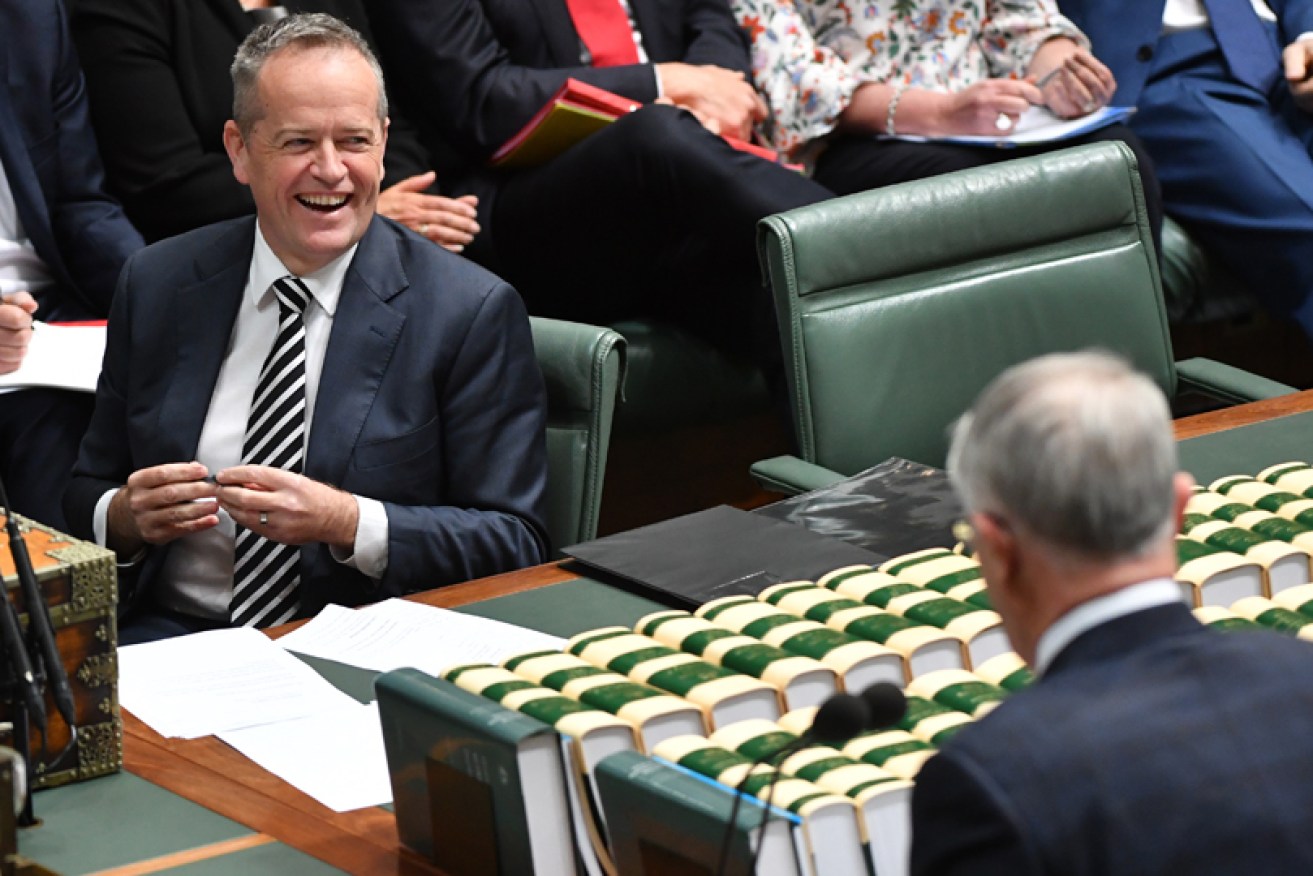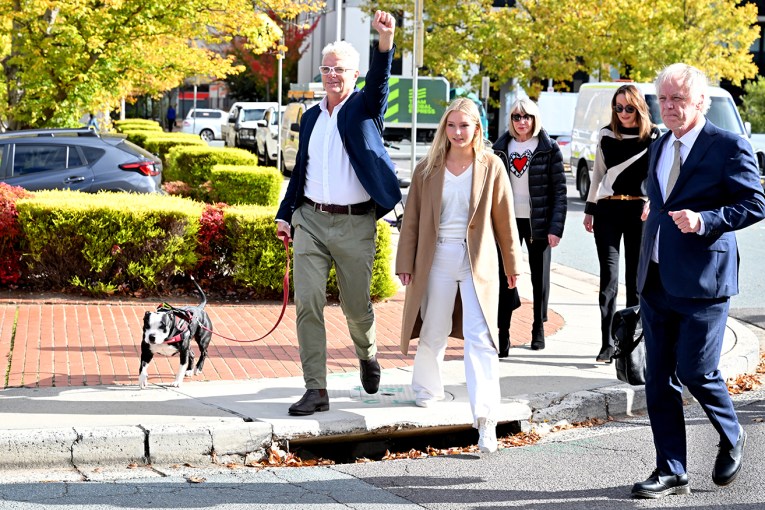‘Improved following consultation’: Turnbull’s awkward defence of backflip

Labor's Bill Shorten couldn't help smiling throughout question time. Photo: AAP
Prime Minister Malcolm Turnbull has insisted his signature energy policy was “improved following consultation”, prompting loud jeers from inside the House of Representatives.
Mr Turnbull announced radical changes to the National Energy Guarantee on Monday morning as MPs threatened to cross the floor to oppose the policy and publicly questioned his leadership.
“The policy that we took to the party room last week has been improved following consultation,” he told Parliament on Monday afternoon.
When that answer attracted a raucous response, he said: “Well, it has been.”
There were even louder jeers when, despite renouncing any carbon emissions target, the Prime Minister insisted he was still serious about tackling global warming.
“We are taking real action on climate change,” he said. “We are.”
The only example he offered was the Snowy Hydro 2.0 project, which he characterised as “the largest renewable energy project in Australia’s history”.
It was a gruelling question time for a Prime Minister who, on Monday morning, under threat of a challenge from Peter Dutton, removed the only part of the National Energy Guarantee designed to avert the consequences of climate change.
A backbench revolt had taken its toll.
The government’s own adviser, Chief Scientist Dr Alan Finkel, had originally recommended an emissions reduction target of 28 per cent on 2005 levels by 2030.
Sensing this would not fly with his backbench, Mr Turnbull dropped this down to 26 per cent.
Then, on Monday, he abandoned the target altogether.
Labor, which has pledged a reduction of 45 per cent, hammered the Prime Minister in question time for the string of backflips.
It pointed out that the Turnbull government has now had five energy policies: an emissions scheme (ruled out in 2016), a clean energy target (ditched in 2017), the NEG version one, NEG version two, and now, Monday’s NEG version three.
Unsurprisingly, there were frequent barbs about the leadership tension.
“My question is to the current Prime Minister,” was how Labor’s Ged Kearney chose to preface her question.
Meanwhile, the heir apparent, Mr Dutton, took just one question, a Dorothy Dixer that played to his hard-man image on border security. He used it to slam Labor for lacking the “strength” to prevent people smuggling.
Despite his insistence of “real action” on climate change, conservative backbenchers in the government greeted Mr Turnbull’s emissions backdown with glee.
The Nationals ministers – Michael McCormack, Bridget McKenzie, Matt Canavan and David Littleproud – took turns praising the new approach.
“Coal is certainly very much part of our thinking, part of our strategy and support and I am delighted [by the new policy],” the Deputy Prime Minister, Mr McCormack, told reporters.
“I’m not afraid to say the c-word,” Deputy leader Bridget McKenzie added. “Coal, coal, coal is going to be one of the areas we invest in.”
Even Barnaby Joyce came out saying it was a “huge step in the right direction” and an “incredibly good outcome”.
He also urged his Liberal colleagues to keep Mr Turnbull in place.
Removing a prime minister creates “turmoil” and “disturbance” and “I don’t think you get reward for it”, Mr Joyce told the ABC.
When asked if “the agitator should shut up”, presumably a reference to Tony Abbott, Mr Joyce replied: “Yes.”
Devoid of the emissions target, the NEG policy is now aimed entirely at pushing down power prices and preventing blackouts. The centrepiece is a ‘default power bill’ that will cap prices.
The roughly one million Australians on ‘standing offer’ contracts with their power companies will see savings between $183 and $416 a year, Mr Turnbull told Parliament.
When asked if he still thought legislating energy policy was “of vital importance”, Mr Turnbull fired back that “what is vital is getting energy prices down”.
Labor leader Bill Shorten had a retort – it appeared his own job was paramount.
“The Prime Minister has passionately advocated three things in his public life. The republic, climate change and his big-business tax cuts,” Mr Shorten said.
“Given the Prime Minister has abandoned the republic, abandoned action on climate change, will he now rule out abandoning his centrepiece big-business tax cut or is it the case that whenever it comes to a choice between his principles and his job, this Prime Minister stands for nothing at all?”
The question went answered.
During question time, Mr Turnbull spruiked personal income tax cuts and the already legislated tax cuts for small and medium-sizes businesses but scrupulously avoided talking about the big-business tax cuts.
It left open the possibility of another major policy backflip to stave off Peter Dutton.








